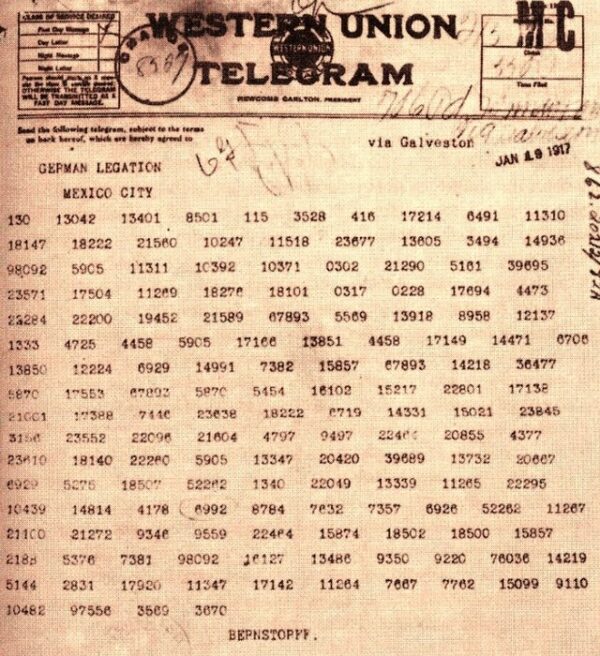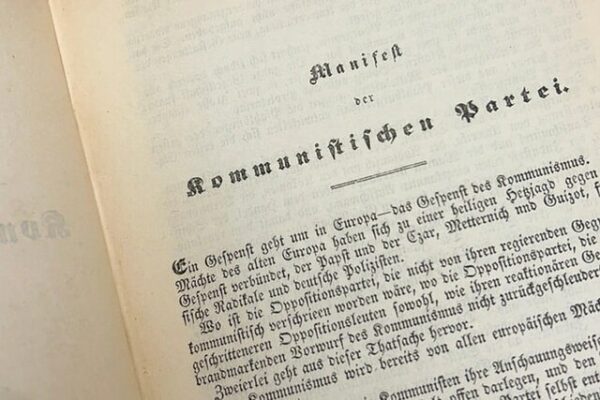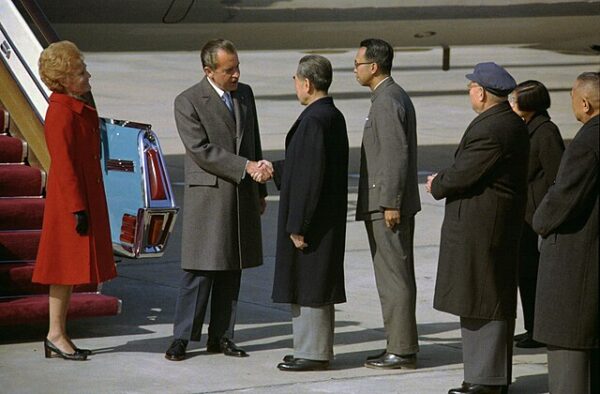On March 1, 1917, Americans learned that Germany had urged our neighbor to attack the United States. The Zimmerman Telegram hit the front page of newspapers and became a turning point in World War I.
The telegram, originally sent by German Foreign Minister Arthur Zimmermann to the German ambassador in Mexico, Heinrich von Eckardt, proposed a military alliance between Germany and Mexico in the event that the United States entered the war against Germany. The telegram’s most provocative aspect was its offer to Mexico: the prospect of regaining the territories of Texas, New Mexico, and Arizona if Mexico aligned itself with Germany against the United States.
As tensions escalated in the war, the British intercepted and decoded the Zimmerman Telegram, exposing Germany’s secret overture to Mexico. The British government, faced with the decision of how to handle this sensitive information, opted to share the contents with the United States. They believed that by revealing Germany’s intentions, they could influence American public opinion and potentially sway the U.S. towards joining the Allies.
“The secret to the British interception began years earlier,” writes The National World War I Museum and Memorial. “In 1914, with war imminent, the British had quickly dispatched a ship to cut Germany’s five trans-Atlantic cables and six underwater cables running between Britain and Germany. Soon after the war began, the British successfully tapped into overseas cable lines Germany borrowed from neutral countries to send communications. Britain began capturing large volumes of intelligence communications.
British code breakers worked to decrypt communication codes. In October of 1914, the Russian admiralty gave British Naval Intelligence (known as Room 40) a copy of the German naval codebook removed from a drowned German sailor’s body from the cruiser SMS Magdeburg. Room 40 also received a copy of the German diplomatic code, stolen from a German diplomat’s luggage in the Near East. By 1917, British Intelligence could decipher most German messages.”
The public release of the Zimmerman Telegram played a crucial role in shaping the trajectory of American involvement in World War I. It exposed Germany’s aggressive intentions and provided a compelling argument for those advocating American entry into the war. The United States public, previously divided on the issue of joining the conflict, became increasingly convinced that the country should align itself with the Allies in the fight against German aggression.
President Wilson, who had been re-elected in 1916 with the campaign slogan “He kept us out of war,” now found himself in a position where public sentiment was shifting towards intervention. The shocking revelations of the Zimmerman Telegram fueled a sense of moral outrage and a desire to protect American interests.
Less than a month after the public disclosure of the telegram, on April 2, 1917, President Wilson asked Congress to declare war on Germany.






